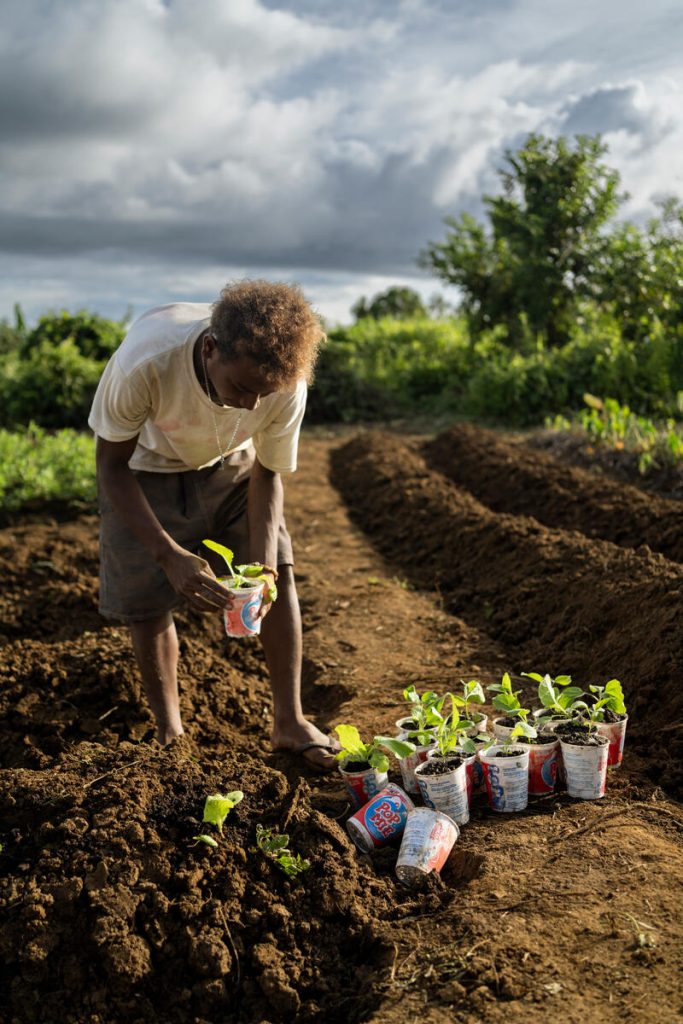At first glance, Junior is just a teenager – a funny, confident, charismatic one. He loves soccer and making his four younger siblings giggle. “I talk about rats, cats, and animals fighting just to make them laugh,” he says.
But there’s way too much on Junior’s shoulders. “I usually feel sad and sometimes I feel sick because I have nothing to eat, because the rising sea level has damaged our food,” says Junior. “I feel angry and sad.”
His community in the Solomon Islands is one of the most vulnerable in the world to climate change. Rising sea levels, combined with increasingly ferocious storms, have flattened homes and killed the crops that so many families here rely on. “The weather has changed,” says Junior. “The rain can last for up to a week. Winds can get very violent. And the sea level rises even more.”
It’s not an exaggeration to say Junior’s generation is inheriting a battle for existence.
That’s why Save the Children is helping young people in the Solomon Islands adapt for challenging times ahead. We’re running training sessions on climate-resilient farming, soil management, and educating communities about which crops will grow best in extreme weather.
Junior’s been putting it straight into practice. “After the training we planted taro, kumara, tomatoes, cabbage, and beans,” he says. “I like eating potatoes, cabbage, tomatoes, also kakama and kakake.”
It’s Save the Children’s job to make sure young people are well prepared for what’s ahead. But it’s also about lightening the load – making sure they can just be confident, funny teenagers.
“I am happy today during the training,” says Junior. And nothing’s more important to us than that.
I sometimes cannot go to school; I sometimes go to school hungry because the rise in sea level has damaged our farms.



